View all Standards for Alberta, Canada
12 demonstrate knowledge of elements of space
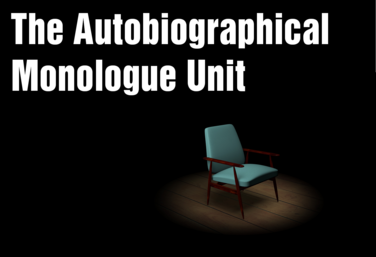
UNIT
The Autobiographical Monologue
by Gai Jones
All students have something to say and a story to tell. They can relate to their personal stories better than anyone else. All students have a lot of material which can be used as part of an original monologue.
In this unit, students will write an autobiographical monologue based on their personal expertise, memories, distinct point of view, sense of truth, and life experiences.
Through the process, students will be encouraged to explore past stories, objects, and images and other personal material.
Read More
about The Autobiographical Monologue
Read Less
about The Autobiographical Monologue
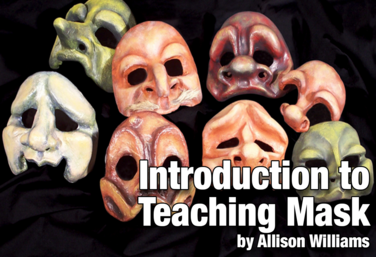
UNIT
Introduction to Mask
by Allison Williams
This unit focuses on having students gain an understanding of basic physical acting and learn some specific tools to use in mask work. Instructor Allison Williams has developed this unit, and explains "What I love most about mask work is how, by having students cover their faces, they are able to find freedom to express themselves physically. They often make bigger choices than we’re normally used to seeing them make in class."
In this unit, students will work step by step from identifying shapes in the mask to using those shapes to creating a character zero to learning how to move in the mask utilizing the qualities of movement to applying everything they’ve learned in short scenes. The unit will culminate with students working in pairs to create original mask scenes.
You will need masks to complete the unit. And while mask-making can be a lot of fun, it’s a lengthy and messy project. A list is provided in the Overview of where you may be able to buy or rent masks for use in your classroom.
Read More
about Introduction to Mask
Read Less
about Introduction to Mask
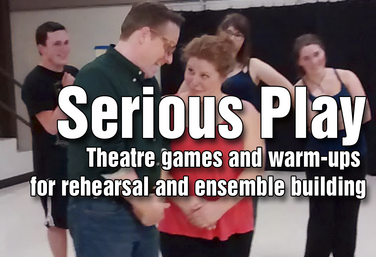
PD COURSE
Serious Play: Theatre Games and Warmups for Rehearsal and Ensemble Building
by Todd Espeland
In this class, Serious Play, the instructor will lead you through a series of games in risk, movement, focus, and voice. You will get access to a series of all inclusive games that you can string together to make one giant game that is great to use in rehearsal. You will learn how and when to use these games.
You'll get ideas on how to craft your own warm-up lesson plan; and, most importantly, you'll learn about about a pre-class warm-up that you can do on your own so that you can get yourself into that third stage of the creative brain, so that you can begin trying out interesting, creative, and risky choices for yourself in your classes and in rehearsals.
Read More
about Serious Play: Theatre Games and Warmups for Rehearsal and Ensemble Building
Read Less
about Serious Play: Theatre Games and Warmups for Rehearsal and Ensemble Building
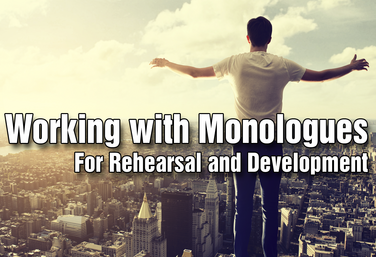
PD COURSE
Working With Monologues For Rehearsal And Development
by Gai Jones
In "Working With Monologues For Rehearsal And Development" you will develop ten sessions of study on monologues. The study contains the definition and history of the monologue; monologue vocabulary; analysis of a practice monologue, staging a short monologue; working with musical theatre lyrics as a monologue; writing short autobiographical monologues.
At the end of this course, you will have a curriculum which can be used as introduction to monologue work.
Read More
about Working With Monologues For Rehearsal And Development
Read Less
about Working With Monologues For Rehearsal And Development
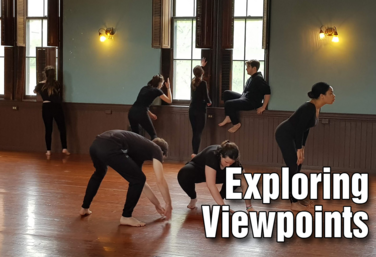
PD COURSE
Exploring Viewpoints
by Erin Carr
Viewpoints is used to create dynamic moments of theatre by simply existing on the stage. However, Viewpoints is more than just an acting technique to understand your own physicality and more than a directing technique to create “ah-ha!” moments on stage. It is first and foremost the philosophy that to create an organic performance, you must see obstacle as opportunity, and that by simply standing in space, your creativity can spark.
This course by Erin Carr will help your students discover fresh impulses that motivate their performance in the moment. We will go through the Viewpoints technique, as created by Mary Overlie, and learn how to tap into kinesthetic awareness as individuals and as an ensemble. Through this style of play, students learn to release their thoughts on what they “should” do, and instead just respond organically to their surroundings and ensemble!
We’re going to break down each of the Viewpoints, there’s lots of visual demonstration, so you can see each Viewpoint in action, and I’m going to provide tips and side coaching examples.
Read More
about Exploring Viewpoints
Read Less
about Exploring Viewpoints
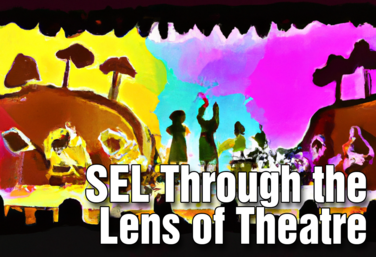
PD COURSE
SEL Through the Lens of Theatre
by Christa Vogt
SEL stands for Social Emotional Learning. Theatre teachers know that Social Emotional Learning and its categories: Self-Awareness, Self-Management, Social Awareness, Relationship Skills and Responsible Decision Making, are innate in what we do.
The goal of this mini-course is to show you that you can take SEL in the way that your administration wants you to, using the language they want you to use, and apply it to lessons you already teach.
Instructor Christa Vogt will take you through the facets of SEL, and then take you step by step through an activity - to show you how you can apply SEL to each and every step.
Read More
about SEL Through the Lens of Theatre
Read Less
about SEL Through the Lens of Theatre
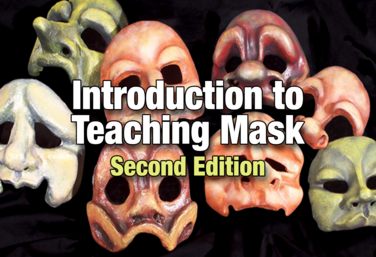
PD COURSE
Introduction to Teaching Mask: 2nd Edition
by Allison Williams
In Introduction to Teaching Mask: 2nd Edition, Allison Williams gives you a toolkit of mask and movement exercises to teach students to make big, confident physical choices, to work in their bodies, and play different characters - masked and unmasked.
By working through the exercises in this course, you, the teacher, will also gain an understanding of basic physical acting and learn some easy specific tools to coach your students – not just in mask, but in all their performance work.
Access to masks is required, but previous experience with masks is not.
Read More
about Introduction to Teaching Mask: 2nd Edition
Read Less
about Introduction to Teaching Mask: 2nd Edition
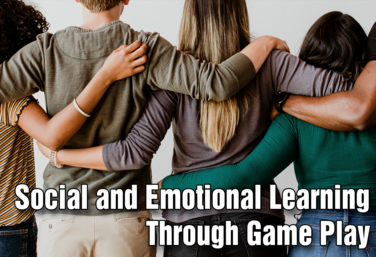
PD COURSE
Social Emotional Learning through Game Play
by Matt Webster
The skills identified in Social Emotional Learning are the same skills theatre teachers spotlight in the warmups, games, and activities, as well as group work and theater-related assignments found in the drama curriculum every day.
This course will break down the various games and activities in the drama classroom to identify, incorporate, and intensify the Social Emotional Learning outcomes we want our students to achieve. By the end of this course, you will be able to identify the five components of Social Emotional Learning and see the places in the curriculum where they intersect with basic games and activities in the drama classroom.
Read More
about Social Emotional Learning through Game Play
Read Less
about Social Emotional Learning through Game Play
View all Standards for Alberta, Canada Standards Master List